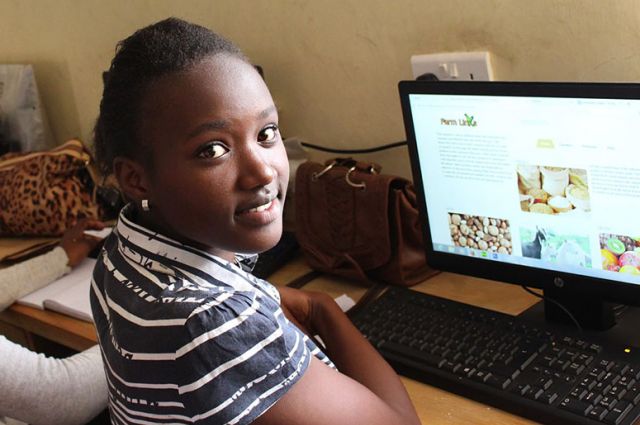Cyber Crimes on Social Media: A Bias Towards Women
- CIPIT |
- August 3, 2016 |
- Guest Post,
- Information Technology
By Zoher Shabbir**

Image Credit: www.takepart.com
We live in a day and age where our lives and our social media accounts share an intricate connection. A lot of information about us (individually) such as where we live, where we work, and even where we are at the moment can be found out via the click of a button. Some of this information is quite personal, and if it falls into the hands of the wrong person(s), it can have a detrimental effect on our lives.
Kenya has been one of the first African countries to adopt information and communication technologies (ICTs). This has led to Kenyans experiencing a large number of benefits but at the same time, it has led to the increase of cyber crimes and technology based violence. Certain types of cyber crimes such as cyber stalking, revenge porn etc have a certain bias; majority of their victims are women. In fact Global Information Society Watch observed that victims who are within the ages of 18-32 were mostly women.
Take the case of a young woman who was a university of Nairobi student .Her nude pictures were shared without her consent (for reasons I am not aware of). As a result of this incident the victim had to enroll for night classes to avoid further publicity.
Another example was when a Kenyan woman’s nude pictures went viral. She had sent some nude pictures of herself to her husband who after separating with her posted them online in an attempt to hurt her. Such an experience can have a major detrimental effect on a victim’s life and can lead to depression or even suicide. Such incidents are becoming more and more popular in Kenya and part of the reason may be due to Kenya’s lack of sufficient legislation in this matter.
The Kenya Information and Communication Act defines cyber crimes as offences against the information technology infrastructure, from unauthorized access to and interpretation of computer services, modification of computer material, data, and unauthorized change of mobile telephone equipment. The definition clearly falls short since it does not acknowledge cyber crimes against a person (such as revenge porn) and as a result excludes or rather under prioritizes the cyber crimes mentioned above from its legislative framework.
Other related pieces of legislation also fall short when it comes to cyber crimes against a person. The penal code, for example, does not contain any provision to deal with revenge porn or online harassment. It mostly caters for forgery and theft of electronic information. According to the International Commission of Jurists Kenya (ICJ Kenya), the Sexual Offences Act also does not cover technology related violence, “Under the act you cannot be charged for what is not written, so the police find it hard to find an offence that perpetrators of technology-related violence against women could be charged under. Further, you are dealing with a police officer who has probably no understanding of what you are claiming”.
Other shortcomings include the fact that a lot of the provisions do not correlate with the gravity of the offence. Take for example cases involving SMS texts (such as sending threatening messages or nude pictures of particular people) that have been reported. The perpetrators in such a situation would be charged under section 29 of Kenya’s Information and Communications which deals with misuse of a telecommunications gadget thus meaning the case will not be content based or criminal based. This is extremely worrying since cyber crimes such as revenge porn can easily amount to human rights violations and therefore should not be treated so tamely.
This problem can be solved or at least improved by spreading more information on the rights people have online, making people aware of the steps they can take if their rights have been violated, creating adequate infrastructure and taskforces to counter such offences thus increasing public confidence and last but not least make sure women play a major in all of the above (take Uganda for example where Goretti Amuriat, WOUGNET’s gender and ICT programme manager who argued that although women represent 35 percent of parliamentary seats in Uganda, they were still under represented in various other positions of authority and this inequality translates into decision making about policy. According to Amuriat, women’s economic empowerment is a key driver to sustainable development, which is often achieved through gender-specific policy perspectives. For ICTs in particular, cyber security and Internet freedom cannot be achieved without including women in policy discussions as they bring new voices and experiences to the discussions).
As Kenyans become more and more technologically dependant, such cases of cyber crimes are likely to increase. There is therefore a need to acknowledge the gravity of crimes such as revenge porn and online harassment and address them sooner rather than later.
**Zoher Shabbir is a Bachelor of Laws (LL.B.) student at Strathmore Law School.
